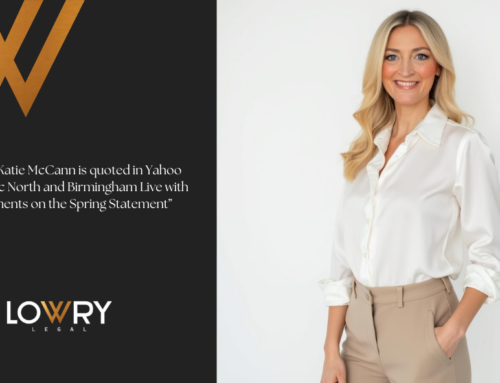Many people believe that inheritance money is automatically protected during a divorce. However, this is far from true. In reality, UK divorce law takes a much more nuanced approach to asset division, and some of the most common misconceptions could quickly lead to costly mistakes.
In this article, we debunk the ten biggest myths among people thinking about protecting, or hiding, inheritance money in a divorce. We’ll explain the best ways to avoid these popular pitfalls and how to protect your assets legally and effectively. Read on to discover the truth behind the fictions, and ensure that your inheritance remains safeguarded now and in the future.
Myth #1: Inherited Money Is Always Protected in Divorce
Reality: While inheritance money is typically considered a non-matrimonial asset, it is not automatically excluded from the financial settlement. The UK courts prioritise fairness, so your inheritance could be included in the overall marital estate if it has been used to pay for shared expenses or possessions.
If your inherited money was kept separate, i.e., in a personal account and never used for joint purposes, it is more likely to remain excluded from division. However, if you’ve used it for joint purchases or household expenses — such as improving the family home, or buying cars and holidays — it could become part of the financial settlement.
Myth #2: Keeping My Inheritance in a Separate Account Makes it Untouchable
Reality: While it’s strongly advisable to keep your inheritance separate, simply placing it in a personal account doesn’t automatically insulate it from a divorce settlement. If your inherited money is used for shared assets i.e., buying a family property overseas or settling joint expenses, it may be considered shared and therefore included in the marital estate.
Myth #3: Hiding Inheritance Money Will Protect it
Reality: Hiding inheritance money to prevent it from being included in a settlement is always a serious mistake. UK divorce law requires full financial disclosure from both parties. And concealing assets can lead to damaging legal consequences.
If your spouse suspects you’re hiding inheritance money (or any other assets, for that matter) they may request an investigation. This often results in forensic accountants being appointed to analyse your financial history — which usually uncovers concealed wealth. Not only can this harm your credibility in court — avoiding financial disclosure could also lead to severe penalties; including a reduced settlement or even criminal charges.
Myth #4: A Prenup Automatically Protects My Inheritance
Reality: While a prenuptial agreement (prenup) can provide some level of protection for inheritance, it is not automatically enforceable in the UK. A prenup is only considered part of the overall settlement and the court will closely examine its fairness. If the agreement was created under duress, was unfair to one party, or didn’t provide full disclosure, it will usually be disregarded.
However, a well-drafted prenup can provide significant protection for inheritance, assuming it’s clear, transparent, and reasonable to both parties. To create a more legally-sound agreement, it’s essential that both parties seek independent legal advice before signing.
Myth #5: I Can Transfer My Inheritance to a Family Member to Keep It Safe
Reality: Transferring inheritance assets to a family member, in an attempt to exclude them from a settlement, will usually be regarded as disposing of assets. Courts can trace these transfers, and have the power to undo them — especially if they’re deemed to have been made to deprive a spouse of their fair share. It’s essential to approach asset protection transparently, seeking professional legal advice to explore legitimate methods of safeguarding inheritance.
Understanding these nuances is crucial for anyone looking to protect inherited assets in the context of marriage and potential divorce. Consulting with a family law solicitor is the best way to obtain bespoke guidance tailored to your circumstances.
Myth #6: If I Don’t Disclose My Inheritance in the Divorce Settlement, it Won’t Be Included
Reality: As we’ve repeated elsewhere, non-disclosure of assets — which includes hiding inheritance money — can lead to serious legal consequences. UK divorce law requires full financial disclosure, and failing to mention inherited money can result in severe penalties, including a larger settlement for your spouse. Trying to hide inherited assets will usually damage your credibility and backfire in court.
Myth #7: My Parents Can Protect My Future Inheritance by Leaving It to Me Directly
Reality: Receiving an inheritance outright can make it vulnerable during divorce proceedings. If you inherit assets directly and subsequently divorce, those assets may be considered matrimonial — especially if they’ve mingled or been used jointly.
Myth #8: The Length of the Marriage Doesn’t Affect Inherited Assets
Reality: The length of the marriage can significantly affect how inherited assets are treated in divorce proceedings. The longer the marriage, the more likely the court is to consider any wealth inherited during the relationship as part of the overall financial settlement. Especially if it has mingled with shared assets or contributed to the lifestyle of the couple.
In contrast, if the marriage is shorter and the inheritance was kept separate, it’s more likely to remain protected.
Myth #9: Placing My Inheritance in a Trust Guarantees Protection from Divorce
Reality: While trusts can provide some protection for inherited assets, they will be scrutinised closely by the courts. If the trust was set up with the sole intention of removing assets from the table, this will usually be uncovered and the trust will be viewed as a sham. This could lead to, at best, a greatly reduced settlement.
Factors such as the timing of the trust’s creation, its terms, and how it has been used will usually determine if its contents are included in the marital estate. For instance, if a trust has been used to benefit both spouses during the marriage, a court might view its assets as joint property. Therefore, while trusts can be a useful tool in protecting inheritance, they don’t provide complete assurance if you are in a divorce situation.
Myth #10: I Can’t Protect My Inheritance After the Marriage Has Begun
Reality: While it’s always better to plan ahead, there are still ways to protect inheritance, even after the marriage has started. Legal tools like postnups (postnuptial agreements) or trusts can be employed to protect an inheritance, as long as they are created with good intentions, transparency and satisfy full disclosure. However, waiting too long to implement this kind of agreement could limit its effectiveness. If a couple is considering a postnup, it’s advisable to do it sooner rather than later — while the relationship is stable and both parties are on a more equal footing.
Lowry Legal: An Expert in Protecting Inheritance From Divorce
When it comes to protecting inheritance in divorce, some myths can quickly lead to damaging mistakes. Many spouses assume that inherited money is always protected, that hiding assets is a viable option, or that simply keeping funds in a separate account acts as its own guarantee. As we’ve discovered, courts in England and Wales take a much more nuanced approach, considering factors like financial needs, asset mingling, and fairness above all else.
Therefore, the best way to safeguard your inheritance is through proactive legal planning — using asset protection tools like prenups —and by thinking about strategic financial management.
At Lowry Legal, we understand that divorce is not just a legal process. It’s a significant event that requires expert guidance to negotiate. Our specialist family lawyers have extensive experience in high net worth divorce cases, inheritance protection, and asset safeguarding. Whether you need a tailored prenup for inheritance, strategic advice on keeping assets separate, or expert representation in financial proceedings, our team can protect your wealth or secure a fair share — helping to secure the best possible outcome for you.
Contact us today for confidential legal advice on protecting your inheritance and navigating your divorce with confidence.
Request a Callback
Leave a few details below and one of our team will be in touch to discuss how we can support you with your legal needs. Please note that we cannot offer Legal aid.














